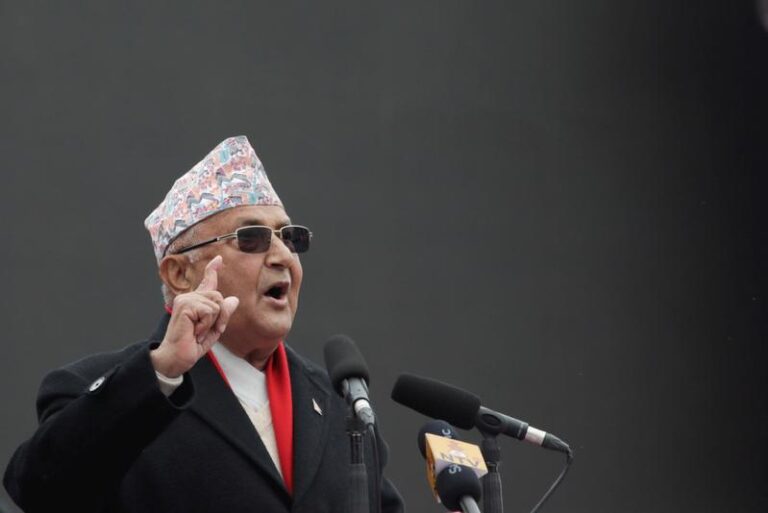
KATHMANDU (Reuters) – Nepal’s embattled Prime Minister K.P. Sharma Oli will not resign but face a floor test in parliament instead, an aide said on Wednesday, a day after the Supreme Court rejected his decision to dissolve the legislature and call early elections.
Political turmoil has rocked the Himalayan nation since last December, when Oli suddenly dissolved parliament and announced the elections, blaming ruling party leaders for a lack of co-operation on key matters of policy.
Oli, 69, has started meeting some allies in the ruling Nepal Communist Party (NCP) to review the situation after the court ruled that parliament’s abrupt dissolution was unconstitutional and ordered that it be called into session before March 8.
Thousands of Nepalis opposed to Oli took to the streets in the capital, Kathmandu, for a public rally on Wednesday to celebrate the decision and press fresh demands for the prime minister to resign.
“The prime minister will not resign now. There is no question about that,” Surya Thapa, the aide, told Reuters.
“He will face parliament,” Thapa added, but did not elaborate.
Members of the anti-Oli faction said they rejected his autocratic style of functioning and the latest court order proved his inability to govern.
All lawmakers opposed to the prime minister are engaged in talks over their next move, said Narayan Kaji Shrestha, a senior NCP leader who organised countrywide protests against Oli in the past months.
“If Oli does not resign then parliament will take a decision on his political fate,” Shrestha said, adding that the tourism-dependent economy battered by the coronavirus needs a stable government.






